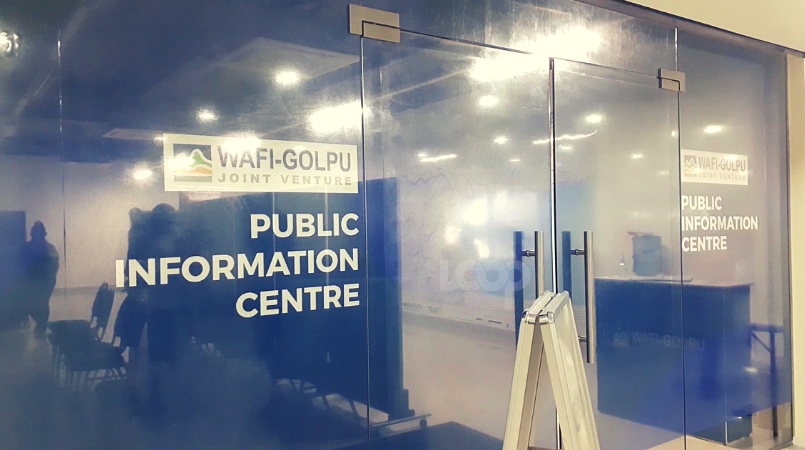
The Wafi-Golpu Joint Venture has opened a public information centre at Lae’s Top Town.
Located on the third floor of the Papindo shopping centre, the new office aims to debunk myths and misinformation pertaining to deep-sea tailings placement by providing facts from their studies.
The Wafi-Golpu Joint Venture’s public information centre has been open since the beginning of this year.
In the past few weeks, a large number of people have accessed the information area, watched deep-sea tailings placement awareness videos and engaged in question-and-answer sessions with the staff there.
Among information made available to interested persons was Wafi-Golpu’s stance that deep-sea tailings placement, or DSTP, is the safest and most environmentally and socially responsible tailings management solution, compared to the building of a tailings dam.
This statement was made following queries on why a tailings dam has not been considered.
“Some tailings disposed in land-based tailings storage facility can contain natural minerals which, when exposed to oxygen, can cause acid rock drainage leading to acid runoff and the release of heavy metals.”
Wafi-Golpu said experts engaged for the project forecast that the ore process would be potentially acid-forming, hence the option of storing tailings away from oxygen through DSTP.
The process involves the use of a pipeline to transport tailings, which have been diluted with seawater, to a depth of approximately 200 metres below the surface.
“After exiting the pipe, around 60 percent of the tailings would flow down the seafloor slope to the bottom of the Markham Canyon, where they will mingle with the river sediments and ultimately, be buried by the river materials,” stated WGJV.
“The remaining 40 percent are predicted to form plumes well below the surface at a depth of 300 to 500 metres.”
In light of Morobe’s concerns that the fish will be unsafe to eat, the company says their environmental studies have proven otherwise. Furthermore, the project will purchase locally caught fish to serve in its own camp dining rooms.
Whilst Wafi-Golpu awaits its environmental permit, Morobeans remain overly concerned of the environmental damages that would follow the exploitation of their resources.
The project is inviting concerned individuals and groups to visit their information centre and talk with their staff.
